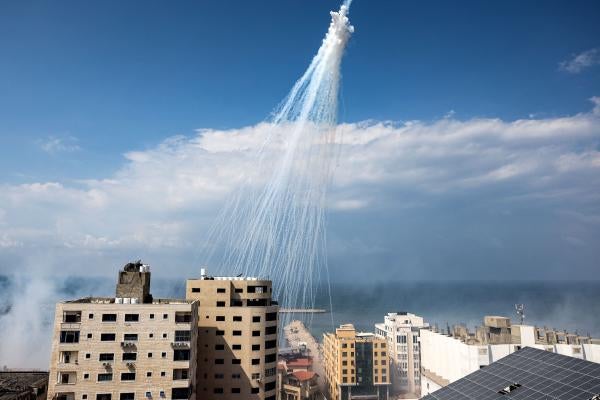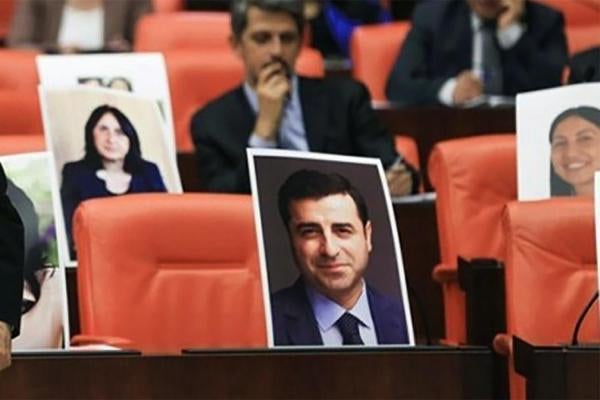Lire la version en français / Lea la versión en español
With the devastation in Gaza raging on, Human Rights Watch yesterday called for a suspension of arms transfers to both the Israeli military and Palestinian armed groups.
This is above all else an urgent demand to help protect civilians, who are being killed at an unprecedented scale – in their thousands – right now.
It’s also a warning to those supplying weapons, given the real risk that transferred arms could be used to commit grave abuses. By providing weapons that knowingly and significantly would contribute to unlawful attacks, allies and backers could find themselves complicit in war crimes.
Those allies include, for the Israeli government, the United States, the United Kingdom, Canada, and Germany. They should all immediately suspend military assistance and arms sales to the Israeli government so long as its forces continue to commit war crimes.
Those allies include, on the Palestinian side, Iran and other governments, which should at once cease providing arms to Palestinian armed groups such as Hamas and Islamic Jihad, so long as they keep committing war crimes.
In the fraught global information environment around this conflict, I expect this call to suspend arms transfers will get significant media attention in the coming days. For us however, there is nothing unusual about our announcement.
We’ve called for arms embargos many times before: on Syria in 2011 and 2015 in the wake of appalling government abuses; on Myanmar in 2017 after the crackdown and mass atrocities against the Rohingya; on Saudi Arabia and United Arab Emirates in 2016 and 2020 in light of atrocities in Yemen; and on Ethiopia in 2021, in the context of grave abuses in the Tigray region.
Earlier this year, we also urged an expanded arms embargo on Sudan to help stem growing mass atrocities there.
An arms embargo is one of the steps governments can take to help try to curb civilian deaths in conflicts where the warring parties are carrying out atrocities with no sign of stopping.
In the current hostilities, Israel and Palestinian armed groups continue to commit serious abuses, and their leaders have made statements indicating that serious abuses by their forces will continue.
Given all that, and with the imperative to save civilian lives, suspending arms transfers to known violators only makes sense.
And refusing to do so when the cost is so clear – when thousands of civilians are being killed – risks making weapons-providing governments and others complicit in the atrocities unfolding.










